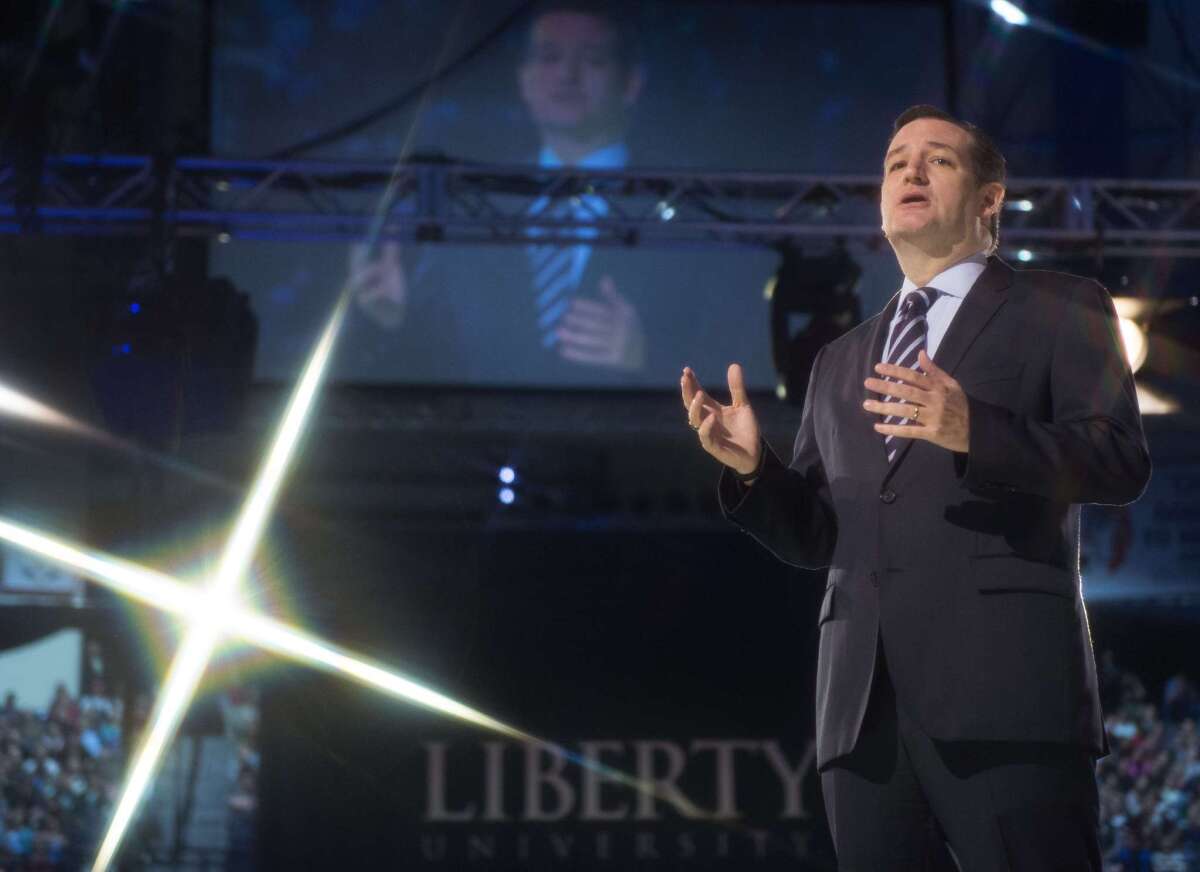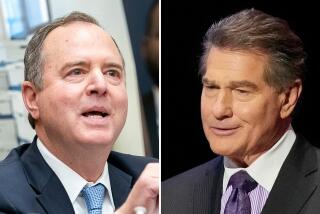How should journalists treat candidates who deny climate change?

- Share via
In the not-so-distant past, it would not have been unusual or unseemly for journalists to identify political candidates making grossly unscientific assertions -- that aliens walk among us, say, or the moon is made of green cheese -- as crackpots.
Climate change, however, seems to have made cowards of the press. Although the scientific consensus is absolutely indisputable that the climate is warming due to human activity, the issue is typically reduced to a some-say-but-others-dispute debate dividing Republicans (usually deniers) from Democrats (usually accepters).
On his invaluable PressThink blog, press critic Jay Rosen raises the question of how reporters should deal with climate change deniers on the campaign trail. He observes that “claims that climate science is a hoax, or that human action is not a factor are not defensible positions in a political debate.” But he’s still at a loss to say exactly how the press should report these claims.
The issue’s importance is underscored by the entry of Sen. Ted Cruz (R-Texas) into the presidential race on Monday. Cruz is a climate change denier. During his recent appearance on NBC’s “Late Night With Seth Meyers,” Cruz said this:
“Many of the alarmists on global warming, they’ve got a problem because the science doesn’t back them up and, in particular, satellite data demonstrate for the last 17 years, there’s been zero warming. None whatsoever.... The computer models still say it is except the satellites show it’s not.”
It fell to California Gov. Jerry Brown to call out Cruz. On NBC’s “Meet the Press” Sunday, Brown said, “That man betokens such a level of ignorance and a direct falsification of the existing scientific data. It’s shocking and I think that man has rendered himself absolutely unfit to be running for office.”
This is a case of science calling out ignorance. But much of the press viewed it through the prism of presidential politics. “Democrats reacted gleefully to the comments by Cruz, the Tea Party and conservative favorite who many believe would be the weakest candidate in the GOP field,” wrote the San Francisco Chronicle. “Democratic strategist Garry South says Cruz’s statements point up a potential problem ahead for the GOP field on the issue of climate change.”
Rosen points us to Ben Adler of Grist, who separated the GOP field into four pigeonholes on climate change:
“(1) Flat-Earthers, who deny the existence of manmade climate change [by Adler’s reckoning this includes Cruz, Jeb Bush and Rand Paul]; (2) Born-Again Flat-Earthers, who do the same, but who had admitted climate change exists back before President Obama took office [Mike Huckabee, Marco Rubio]; (3) Do-Nothings, who sort of admit the reality of climate change but oppose actually taking any steps to prevent it [Chris Christie, John Kasich]; and (4) Dodgers, who have avoided saying whether they believe climate change is happening, and who also don’t want to take any steps to alleviate it [Scott Walker, Bobby Jindal].”
Some news organizations have decided to stop taking seriously people who deny climate change. The Times, for example, said in 2013 that it does not publish letters from climate change deniers: “Saying ‘there’s no sign humans have caused climate change’ is not stating an opinion, it’s asserting a factual inaccuracy” that doesn’t belong in our pages. The BBC also has taken a strong position against giving air time to “marginal opinion,” including climate change denial.
Dealing with such marginal views when they move into the mainstream of political discourse, as climate change denial has within the GOP, presents a unique problem, Rosen acknowledges. He offers four possible approaches:
(A) Treat it neutrally, like any campaign position; (B) assess it in tactical terms -- does it help or hurt the candidate’s chances; (C) never let it pass without reminding readers that it’s a rejection of the scientific evidence; (D) actively confront the candidate with the position’s stupidity at every opportunity.
There are problems with all four approaches, Rosen concedes. A and B make reporters complicit in scientific falsity; C and D could attract charges of “bias.” Rosen calls C the best option and B the worst.
But there’s another approach one almost never sees: Educate the readers about the reason for climate change denial, especially its absorption into the Republican mainstream. The driving force, you see, is money.
Climate change denial, at its core, is an economic position, not scientific. Reporters who take a basic “follow the money” approach soon discover that their path leads them to fossil fuel interests.
The oil and gas industry was the second-largest source of campaign donations to Cruz, at $1.1 million in 2011-14, according to the Center for Responsive Politics. It’s the leading donor to Sen. James Inhofe (R-Okla.), the Senate’s top climate change denier, making $576,000 in contributions since 2009. (The second-largest donor: the utility industry, at $278,000.) The Heartland Institute, sponsor of an annual conference featuring climate change deniers, has been heavily funded by Exxon Mobil and the Koch family.
You get the picture. Climate change deniers in politics typically use the vocabulary of science to question climatological findings, but only the vocabulary. They question whether climatological data are complete or accurate, as congressional science “cardinal” Rep. John Culberson (R-Texas) did in his lengthy interview with us earlier this month. But in most cases their goal is really to protect corporate interests. Since those interests are also the big funders of the Republican Party, you can see why the GOP tends stands foursquare against legislation to address climate change -- it involves taxation and regulation.
That connection is seldom made explicitly by reporters following candidates in the camp of climate change deniers. It should be made in every article. That’s the best way to reveal that climate change deniers in politics aren’t taking a principled stance, whether out of naivete, ignorance or confusion; they’re taking a cynical stance, and their goal is to please special interests.
Keep up to date with the Economy Hub. Follow @hiltzikm on Twitter, see our Facebook page, or email [email protected].
More to Read
Inside the business of entertainment
The Wide Shot brings you news, analysis and insights on everything from streaming wars to production — and what it all means for the future.
You may occasionally receive promotional content from the Los Angeles Times.











